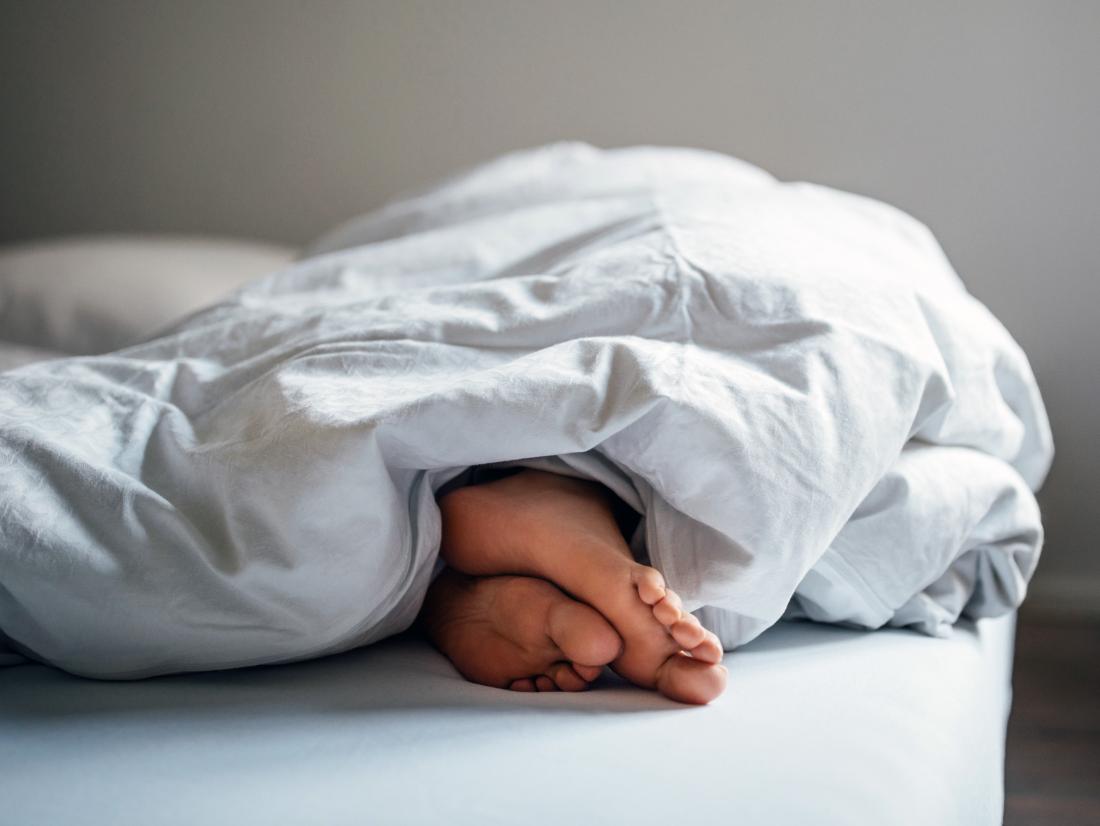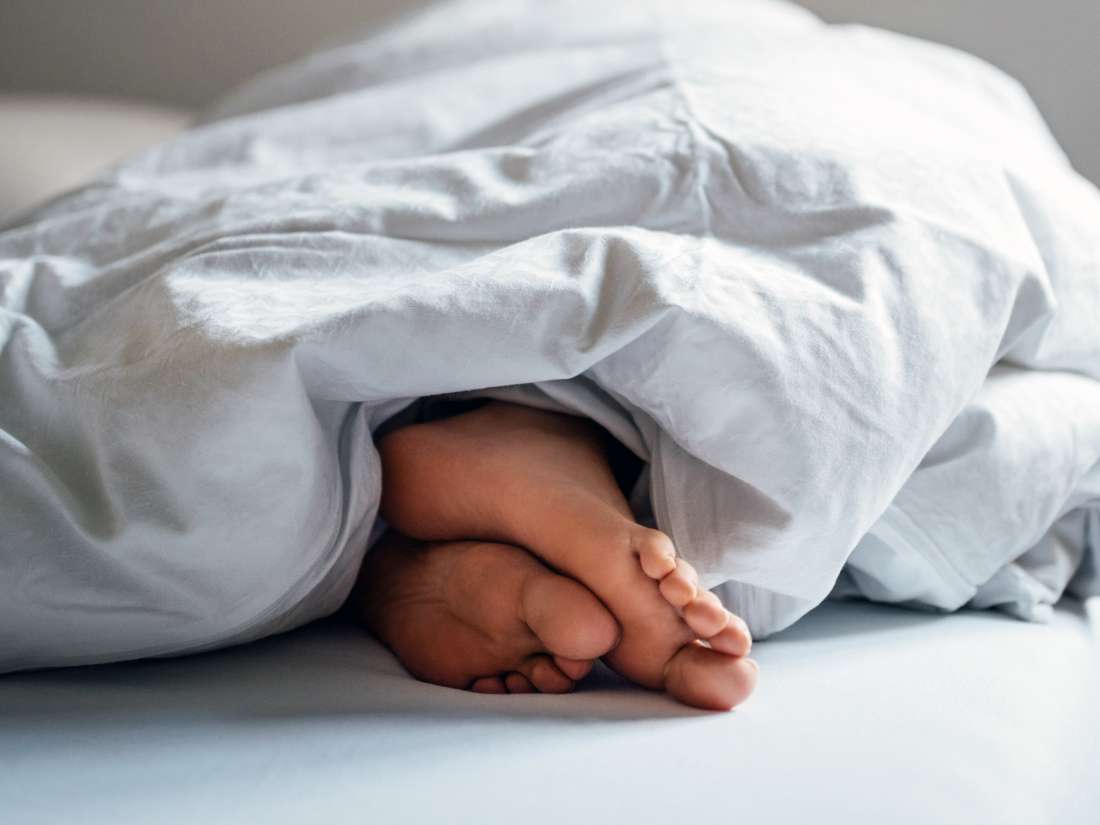Nocturnal seizures are usually a type of seizure called a tonic-clonic seizure. Most people with nighttime seizures of this kind have epilepsy.
In this article, learn more about nocturnal seizures, including the causes, symptoms, and treatments.
What is a nocturnal seizure?

Nocturnal seizures may cause jerking and shaking of the body at night.
Nocturnal seizures are rare and usually mean a person has epilepsy.
Various chemicals trigger regular electrical activity that plays a role in everyday thinking, movement, and other brain functions. During a seizure, a sudden surge of unusual electrical activity causes a person to lose control of some of these functions.
There are many different types of seizures, but most nocturnal seizures are tonic-clonic. Doctors used to call tonic-clonic seizures grand mal seizures. They typically last less than 5 minutes.
During the tonic phase, a person’s muscles stiffen. This can cause them to bite their tongue or lose control of their bladder or bowels.
During the clonic phase, their muscles may twitch. Immediately after the seizure, it may be difficult to wake the person.
Lack of sleep is a common seizure trigger among people with epilepsy, so nocturnal seizures that disrupt sleep may increase the risk of further seizures.
Symptoms
During a nocturnal seizure, a person may:
- cry out or make unusual noises, especially right before the muscles tense
- suddenly appear very rigid
- wet the bed
- twitch or jerk
- bite their tongue
- fall out of the bed
- be difficult to wake after the seizure
- be confused or display other unusual behaviors after a seizure
- wake suddenly for no apparent reason
Not all people with nocturnal seizures know they have them. Sometimes, the only symptom is a headache or a bruise upon waking.
Following a seizure, a person may feel exhausted or sleep deprived. This can cause them to be sleepy or irritable during the day.
Nocturnal seizures usually occur right after a person falls asleep, right before they awake, or right after they awake.
Causes

Genetics are a possible cause of epilepsy.
Epilepsy can cause nighttime seizures. Epilepsy is an umbrella term that refers to many different types of seizure disorders.
Knowing a person has epilepsy does not explain why they have seizures. Doctors diagnose a person with epilepsy if they have two or more seizures that are not clearly due to something else, such as a fever or alcohol withdrawal.
Some potential causes of epilepsy include:
Certain types of epilepsy are more likely to cause nocturnal seizures. They include:
- awakening tonic-clonic seizures
- childhood benign rolandic epilepsy
- Landau-Kleffner syndrome
- frontal lobe epilepsy
- juvenile myoclonic epilepsy
Diagnosis
Distinguishing nocturnal seizures from other sleep behavior, such as sleepwalking or night terrors, can be challenging.
People who live alone may wake up tired, but not know that they have seizures. If a person does not experience daytime seizures, they may be unaware they are at risk for nighttime seizures.
A person who has unusual nighttime behavior, headaches in the morning, or unexplained mood changes should see a doctor.
Doctors usually diagnose epilepsy with an electroencephalogram (EEG), which is a test that measures electrical activity in the brain. In some cases, a doctor may recommend MRI or CT scans to see if there is an area of brain injury or a tumor in the brain.
When a person only experiences nighttime seizures or is not sure whether their nighttime experiences are seizures, a doctor may recommend a sleep study. Sleep studies can rule out other issues, such as sleep apnea.
Nocturnal seizures in children
Several types of childhood epilepsy can cause nocturnal seizures.
Benign rolandic epilepsy, the most common form of childhood epilepsy, usually disappears in adulthood. The primary symptom is nighttime seizures.
Children with this form of epilepsy may also have migraines or behavioral issues. Most children with this form of epilepsy have a family history of seizures.
Juvenile myoclonic epilepsy, sometimes called Janz syndrome, typically begins in adolescence, and the seizures may be short at first. Doctors do not know what causes this type of epilepsy, but it may be genetic.
Not all nighttime seizures in children mean the child has epilepsy. Between 2% and 5% of children under 5 years of age in the United States experience febrile seizures, which happen when they have a fever.
Febrile seizures are usually harmless, and they typically resolve once the fever subsides. However, it is essential to see a doctor to rule out other causes, such as a brain injury or infection.
Treatment and prevention

Antiseizure medication may help prevent nocturnal seizures.
Nocturnal seizures are potentially dangerous and increase the risk of dying from epilepsy. Having a seizure while sleeping can also make a person prone to injuries.
People who experience nighttime seizures are more likely to suffer low blood oxygen during and after the seizure. They are also more likely to continue to experience unusual brain activity after the seizure.
While this can be frightening, epilepsy is usually treatable. Controlling the seizures greatly reduces a person’s risk of complications.
The right treatment depends on the type of seizure a person has, the cause, and other health factors. Possible treatments include:
- antiseizure medication, such as phenytoin
- avoiding seizure triggers, such as sleep deprivation
- a high fat, low carbohydrate diet, or ketogenic diet
- a vagus nerve stimulator, or surgical implant that sends electrical impulses to the brain
Tracking symptoms and triggers can help with identifying any patterns in the symptoms and whether the treatment plan is working.
People who have nocturnal seizures may also wish to take measures to prevent injuries. These can include:
- choosing a low bed frame or placing the mattress on the floor
- putting a safety mat, such as those for gymnastics, on the floor next to the bed
- using wall mounted lamps rather than table lamps
- keeping furniture away from the bed
- using a nocturnal seizure monitor that alerts a loved one when a person has a seizure
Summary
Nocturnal seizures are potentially dangerous. For people with no previous history of seizures, they may be the first sign of epilepsy.
No matter how many nighttime seizures a person has or what medication they take, it is vital to see a doctor for any symptoms of nighttime seizures promptly.
Controlling nighttime seizures can significantly reduce the risk of epilepsy complications. A full diagnosis can also rule out other causes of troubling symptoms at night.
